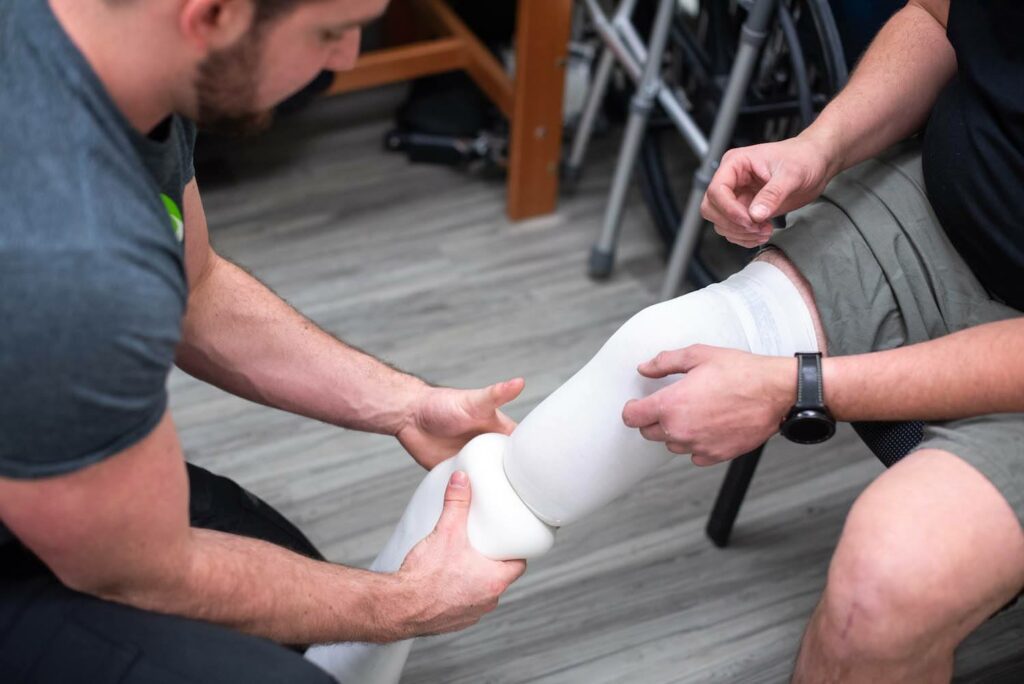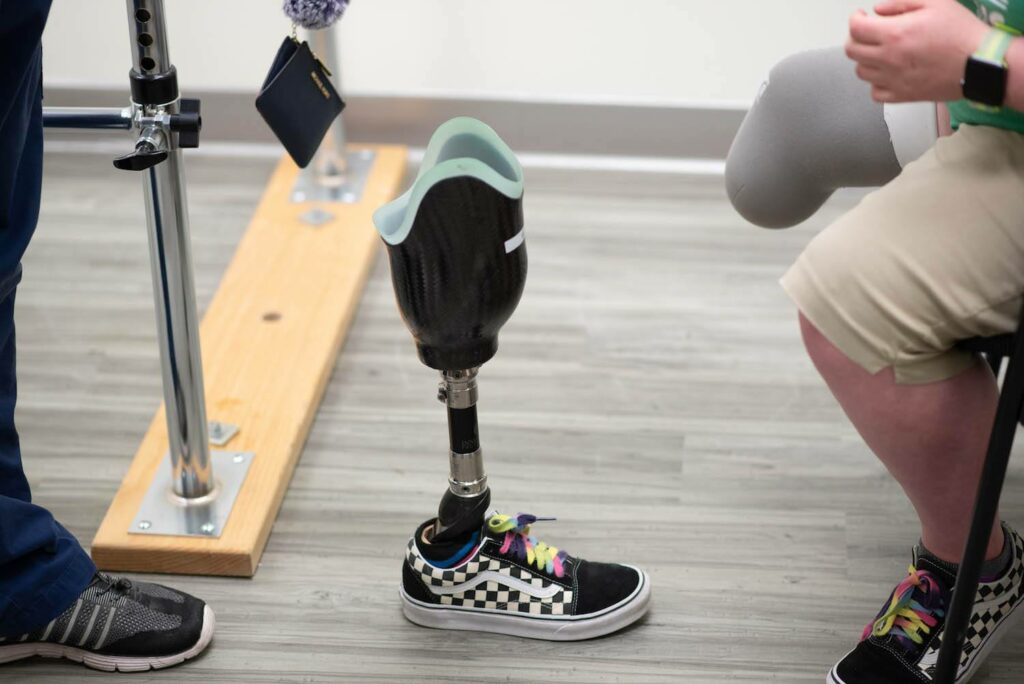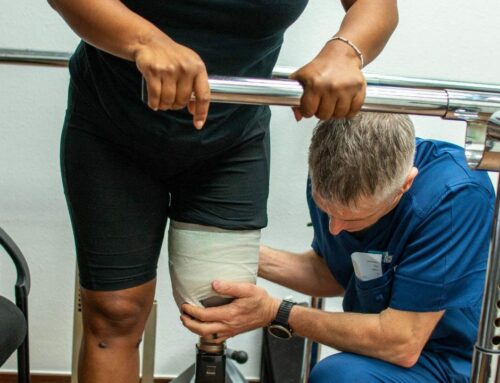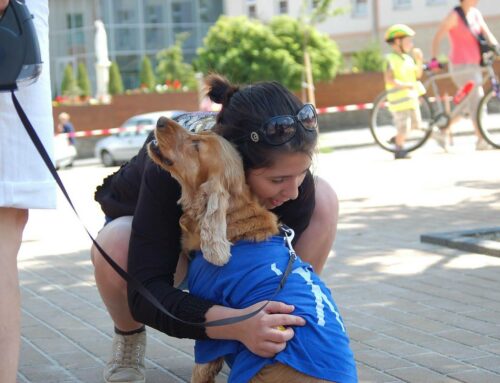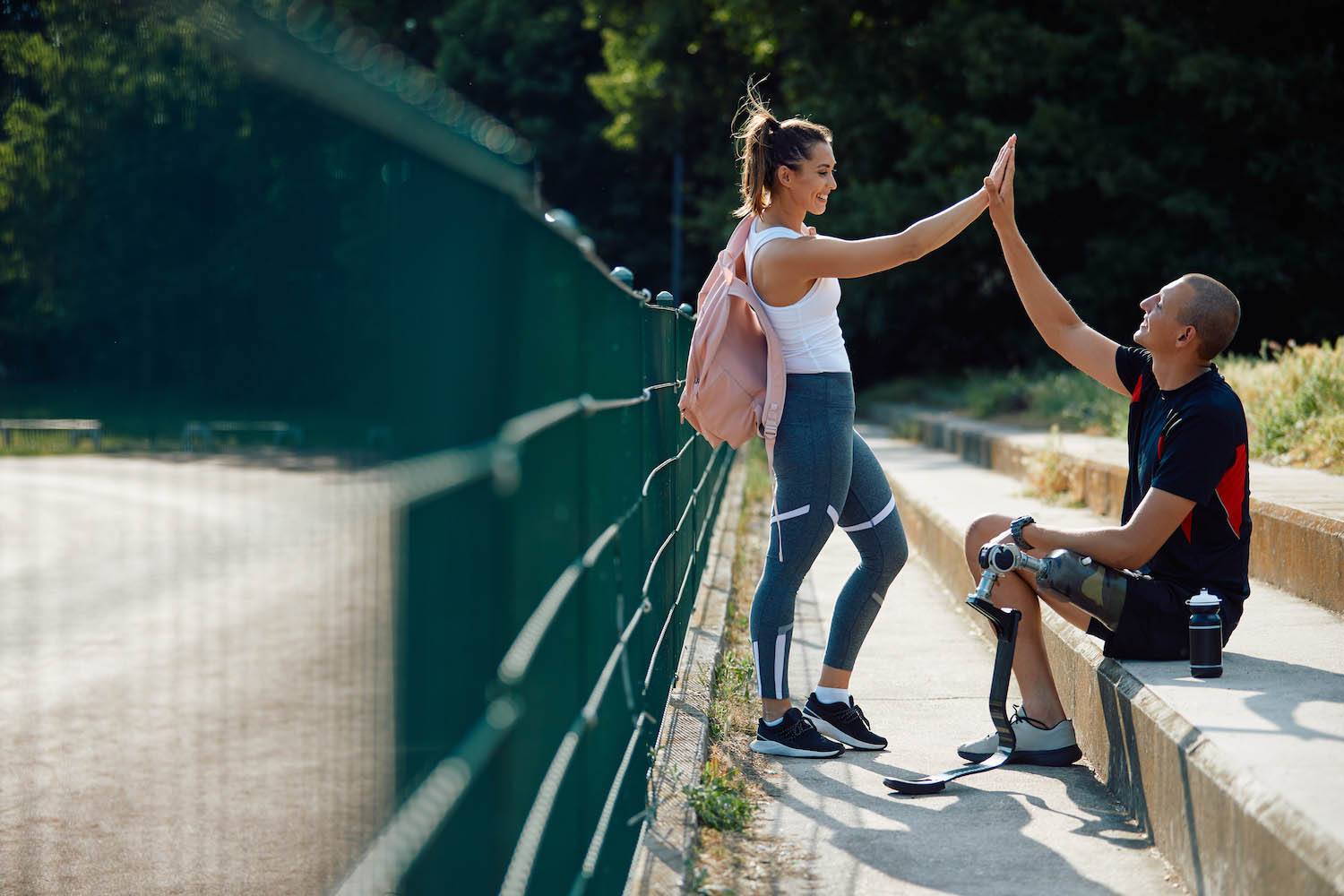
The Importance of Amputee Patient Advocacy & Support
There are many prosthetic companies ready to fabricate and sell prostheses to amputees. However, at Texas Orthotics & Prosthetic Services (TOPS), we believe it’s the people that make the major difference in an amputee’s recovery and continued quality of life improvement. That’s why TOPS is diligent in our efforts to cultivate a caring network of personal and professional support to help amputee patients adjust to a new state of normalcy and grow to live life to the fullest. We help to provide amputee patients the support they need through patient care coordination, amputee patient advocacy, and connections with limb loss support groups.
Amputee Patient Care Coordination
Each amputee patient that works with TOPS is assigned a patient care coordinator. The patient care coordinator is an amputee’s personal liaison to help them coordinate with doctors, rehabilitation clinics, insurance providers, and prosthetists. Patient care coordinators help collect and transfer the necessary medical documents vital to prosthesis coverage between healthcare providers, Medicare, and insurance. They are essential to getting coverage approved promptly and reducing the amount of time an amputee patient spends waiting for their prosthesis.
Texas Orthotics & Prosthetic Services’ patient care coordinators also help amputees find financial assistance through Veteran Affairs, national or local non-profits, Medicare, private medical insurance, and potential medical equipment financing options. However, their support goes far beyond helping amputee patients gain their prostheses. Patient care coordinators support the whole amputee journey. They provide amputee patients an immediate resource and font of information and education. They can help answer amputee questions about residual limb care, prosthesis, fitting, exercises, and provide outside support resources to make sure amputees are educated and confident about their current progress. Part of an amputee patient care coordinator’s responsibility is helping amputees connect with an amputee patient advocate and even prepare to become one.
Amputee Patient Advocacy
We want amputee patients to realize that amputation doesn’t necessitate a drastic drop in their quality of life. Depending on the amputation circumstances, many amputee patients can significantly increase the quality of their life. Helping amputee patients along that path is why TOPS is so determined in building its amputee patient advocacy program. The advocacy program helps amputees get involved with other amputees and provides a way for amputees to appreciate the support by paying it forward. Amputee patients can help other amputees while strengthening their bonds in the amputee community and build a sense of purpose through their life situation.
We know that a fellow amputee is the best resource for understanding a new way of life as an amputee and supporting the recovery of new amputee patients. Amputee patient advocates support patients by relating information, experience, and encouragement in a way that is more impactful when it comes from a fellow amputee who can empathize with the patient’s struggles. Together with patient care coordinators, amputee patient advocates can help recent amputees get locked into a broader network of amputee support through limb loss support groups.
Amputee Limb Loss Support Groups
Limb Loss Support Groups support amputee patients as an ongoing resource for amputees. There are national, state, regional, and local limb loss support groups. Many amputee patients find value in being part of multiple limb loss support groups and their varied resources. TOPS amputee patients are introduced to the different limb loss support groups through their patient care coordinator or an amputee patient advocate. Limb Loss Support Groups, especially those at the local level, provide a high level of moral support to amputees through regular social interactions and create a sense of community for all types of amputees.
These support groups also provide communication and news about new prosthetic technologies, techniques, and resources to help amputees improve their quality of life. Many limb loss support groups support amputees by promoting and running programs to enhance amputee physical fitness, social interaction, and healthy lifestyle choices. Some limb loss support groups provide direct aid to new amputees through hospital visits and act as support buddies for physical rehabilitation appointments. Limb loss support groups also make a difference in amputee lives by working with universities and teaching hospitals to further prosthetic and physical therapy education. These support groups become organizations that amputee patients receive value from and can add value to the group for the benefit of other amputees.
TOPS Amputee Patient Support
We believe that gaining a prosthesis is the beginning of an amputee’s journey, not the end. Long-term amputee patient success, happiness, and personal fulfillment rely on much more than a piece of functional equipment. Texas Orthotic and Prosthetics (TOPS) believes it’s the people around you who provide compassion, support, and guidance to help you live your best life that’s the most important. If you or your loved one is ready to start the journey, we ask that you get in touch with us so we can go on the road together.

